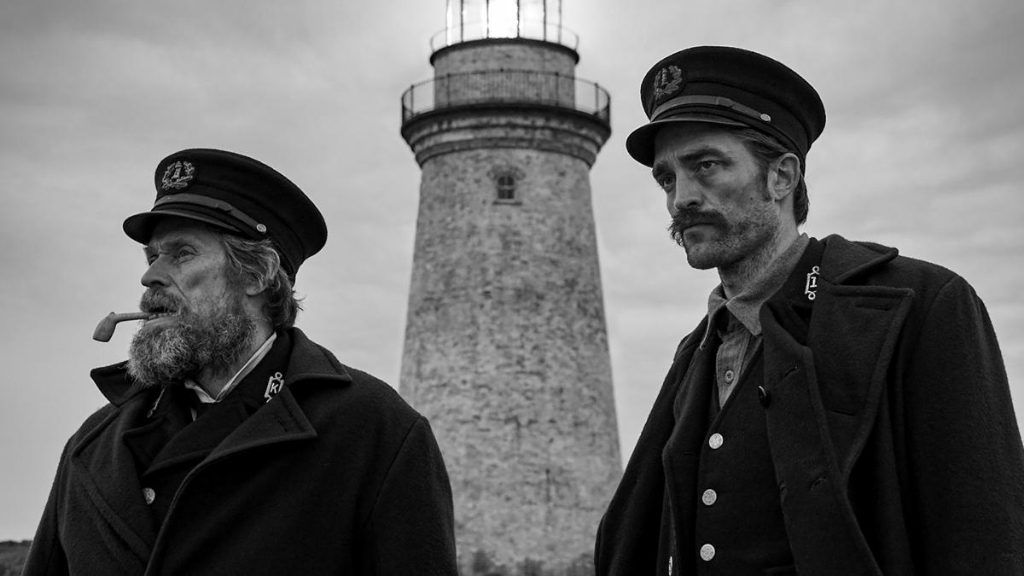The Lighthouse

When travelling to an isolated lighthouse, borne against scheming waves and mutinous storms, expect to stay a while. Expect the night tremors to come on. Expect to scream, squeal and ejaculate. Get the work done. Take it easy on the liquor concoction. Leave the gulls alone.
Director Robert Eggers has considered the maritime extremes and produced something referential yet extraordinary: a hearty sea tale full of beating organs, a suffocating chamber piece rendered apocalyptically anew. Whereas in the director’s previous film The Witch evil sprung up from the woods, here malice poisons the whale oil, deluding the tower occupants, opening up the portal from which the torrent of madness springs.
Robert Pattinson brings bulky, wide-eyed presence to the role of Ephraim Winslow, worn down by an unspeakable past, unprepared for the arbitrary, barbarous tutelage of keeper Thomas Wake – played by a frothing, demonic Willem Dafoe. Together they must keep watch and maintain the lighthouse. Despite constant commands, orders and chores, the environment is suffused with an arcane atmosphere. Nothing is certain; all are delirious.
Eggers integrates classic paranoid styles of cinema, those of Welles and Bergman, into an assortment of 19th-century seafaring tropes. There are traces of Melville, Poe and Conrad. One astonishing show of doubling recalls the latter’s short story The Secret Sharer, illustrating the fear of seeing yourself as a headless corpse, as a shadowy dark head, as someone nodding imperceptibly.
Both inmates speak in theatrical period dialogue – Dafoe’s Wake has the meatier of the deliberately mannered soliloquies – that produces both laughter and disquiet. Power relations between them are reduced to oscillation, to perplexing shifts in authority and certitude. Horror and fantasy merge to indicate repressions of the self; sirens and mermaids offer erotic reprieve, hallucinatory efforts to locate the identity.
Salt, brine and mud form the grounds of conflict, a textured crust on which the two heroes come to blows. An amphibious blob appears above a right eye, bulbous and tactile. The bickering scatology, the ill manners, the flatulence: all are reminiscent of a Beckett dramaticule. But rather than being pared down to foundational absurdity, The Lighthouse forges a landscape of grimy surfaces, intense lighting, grotesque postures and easy self-reference.
Lighthouses exist due to hazards of the sea. They show the port in the storm. What if they degenerate, become detached from the base and topple inwards? Flux wrestles the state of normality, the dream world reigns and the visions multiply until – after the teasing glance of human memory – the body is picked apart, either by beak or blunt instrument. This is a beautiful, confounding work.
Joseph Owen
The Lighthouse does not have a UK release date yet.
Read more reviews from our Cannes Film Festival 2019 coverage here.
For further information about the event visit the Cannes Film Festival website here.
























Facebook
Twitter
Instagram
YouTube
RSS